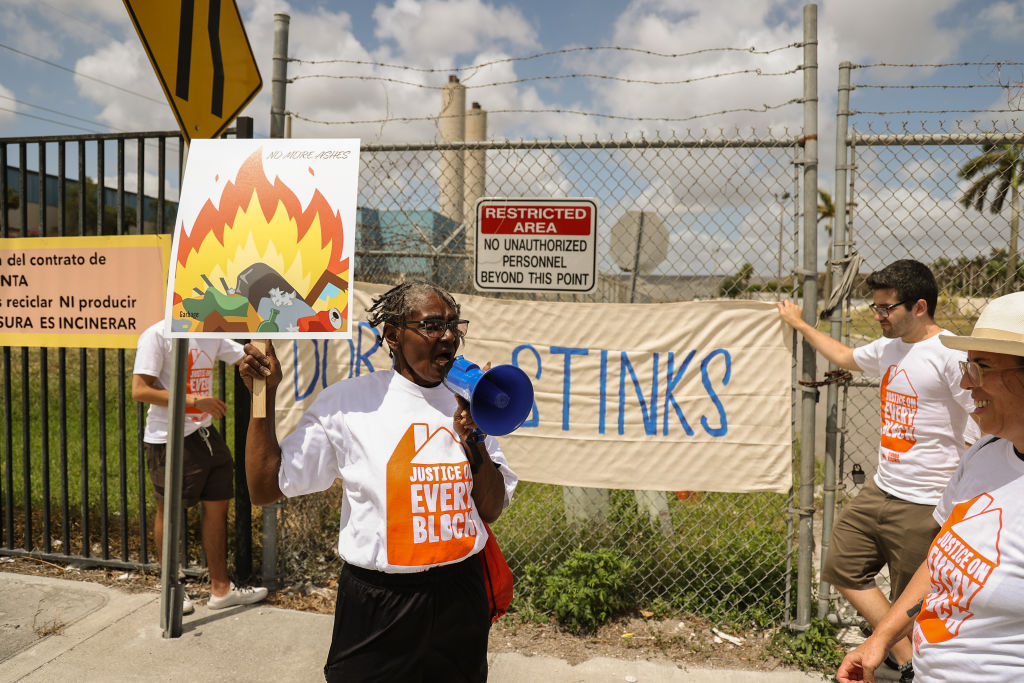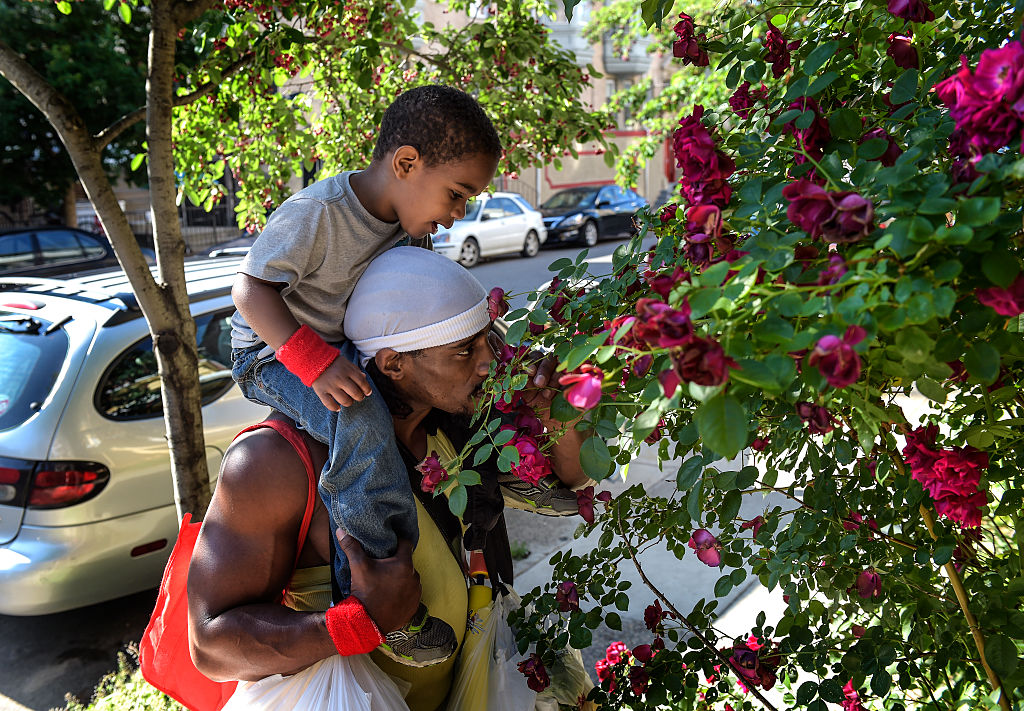What the Anthropology of Smell Reveals About Humanity
As millions of people have lost their sense of smell to COVID-19, anthropologists are investigating the surprising significance of this underrated sense.
Vivian,* a Washington, D.C.–based art curator, realized she had COVID-19 in December 2020. “I bought a tree, and I brought it home,” she recalls. “And I thought, This tree has no smell. What did they sell me? Is this a bad tree?”
For Vivian, the moment involved more than frustration about a “bad tree.” Her loss of smell left her unable to conjure memories and even affected her sense of self.
“That Christmas was really hard,” she says. “That pine smell that I love, that I associate with childhood and my father … it’s gone. You want to grasp something, and you are grasping nothingness. It affects my sense of personhood. I’m still who I am, but there is something that has left that is very vital to my life.”
The number of people experiencing lost or distorted olfaction has risen astronomically during the COVID-19 pandemic. One study indicates that as many as 62 percent of patients who tested positive for the virus experienced smell loss (known clinically as anosmia).
Many people with anosmia suffer feelings of disconnection, isolation, and depression. When COVID-19 robbed Abra, a San Francisco–based communications manager, of her sense of smell, “all the color was taken out of life,” she says. Abra was fortunate and slowly started to regain her sense of smell. But many people remain in a scentless world years after their diagnosis.
The profound impact that smell loss has on people’s lives underscores how central olfaction is to the human experience. Though COVID-19 has shone a spotlight on smell, anthropologists have spent decades sniffing out the nuances of this mysterious and powerful sense: how it connects to our evolution, our memories, our cultural diversity, and our emotional well-being.
DANGER AND DELICIOUSNESS: THE EVOLUTION OF SMELL
Humans are typically portrayed as visual creatures, but our olfactory abilities are underrated. While many people can discriminate between several million colors and nearly half a million different auditory tones, we can smell more than a trillion odors.
Smell “has this infinite dimensionality,” says Matthew Cobb, an evolutionary neurobiologist at the University of Manchester. Yet smell remains distinctly enigmatic, he adds. “We understand how vision works, how hearing works, and more or less how taste works, how touch works, but not smell. We don’t know what the rules are.”
Olfaction is one of the first senses that evolved, and it’s an essential element of survival for many creatures. It directs organisms toward food and mates, and away from threats such as toxins and predators. “We rely on odors as a clue that something is going wrong,” says Kara Hoover, a biological anthropologist at the University of Alaska.
Melissa, a New York–based podcaster, realized how crucial scent is for safety when she lost her sense of smell. “I kept burning stuff on the stove,” she says. “I’ve sent rotten turkey to school with my kid. I have thought, What if I end up dying because I can’t smell something dangerous, like knowing whether you are going to burn the house down? I’ve literally almost done it three times. There are flames, and I’m just sitting in the other room.”

Humans can even smell fear—an important social clue that a threat is nearby. In one study, researchers collected sweat from participants who watched a comedy and a scary film. Another group of subjects could often correctly identify the sweat from frightened film watchers.
Homo sapiens’ nose for danger and for delicious foods may have given us an evolutionary advantage over other species. Anthropologists have found that the parts of the human brain associated with olfaction and cognition are 12 percent larger than those of Neanderthals. Researchers speculate this may have allowed H. sapiens to consume a greater variety of foods and better recognize kin, which contributes to group cohesion.
In their 2021 book, Delicious: The Evolution of Flavor and How It Made Us Human, ecologist Rob Dunn and medical anthropologist Monica Sanchez hypothesize that the ability to sniff complex aromas advanced human evolution because it allowed ancient people to enjoy more complex flavors. When cooked, “meat goes from having tens of aromas to having hundreds of different aroma compounds,” Dunn told The Guardian. Dunn and Sanchez argue that the desire for aromatic cooked meat may have led early humans to control fire and invent better stone tools for barbecuing.
Cooked food is also safer, easier to digest, and provides more calories than raw meat. So, some scientists have suggested that cooked food allowed our ancestors to develop smaller digestive systems and bigger brains. This somewhat controversial idea claims that cooking meat made us human.
THE ANTHROPOLOGY OF SMELL AND THE ENVIRONMENT
As ancient humans spread across the planet, they encountered myriad new stenches and aromas, and their olfactory systems adapted. Hoover and an interdisciplinary group of colleagues found that contemporary humans have more protein variation in their olfactory receptors than other bipedal apes, such as Neanderthals and Denisovans. “It may mean that it gave us a lot more flexibility as a species to adapt to our environments,” she says.
Human smell receptor genes also vary tremendously across individuals, populations, sexes, and age groups. Scientists believe culture and the environment play a role. “The expression of the gene alters with experience,” Cobb explains.
“Sensory inequities”—unequal, often racialized, access to healthy sensory environments—can lead to smell loss.
These olfactory cultural differences play out in numerous ways. For the Ongee of the Andaman Islands, an archipelago in the Indian Ocean, smell defines the universe and everything in it. They consider odor to be the source of personality and think their spirits reside in the nose. Their calendar is based on the fragrances of flowers that bloom at different times of the year. They name each season after a particular scent and believe it possesses its own distinct “aroma-force.”
Other societies have a more ambiguous relationship with smell. Many Western cultures associate foul stenches with social and moral defilement, and this attitude affects behaviors of social inclusion and exclusion. In the U.S., for example, eliminating body odors through deodorants serves as an ideal of self-control. As a result, Euro-Americans have a different tolerance for body odor than their European ancestors.
This cultural variation partly stems from variations in “smellscapes” between rural and urban locations. Some hunter-gatherers, such as the Jahai people living in the rainforest of the Malay Peninsula, have a better sense of smell than settled peoples—even horticulturalists in the same region.
The Seri, or Comcaac, in Sonora, Mexico, speak a language infused with many words for smells and olfactory metaphors for emotions. However, as the community underwent urbanization and “deodorization,” they lost touch with the smells of certain plants and animals, such as vulture meat, green sea turtle, and snails. These radical changes in olfactory stimuli led to a loss of language and medicinal knowledge, according to a study published in Anthropological Linguistics. The researchers suggest that the connection between scent loss and the loss of language diversity brings urgency to studying smellscapes and their cultural significance.
In addition to changes in smell lexicon, variations in the built environment can also lead to what Hoover calls “sensory inequities”—unequal, often racialized, access to healthy sensory environments. Some of these inequities can lead to smell loss.

Risk for olfactory dysfunction increases with social factors such as poverty, race, and education. A primary risk factor is pollution, which tends to be worse in low socioeconomic areas. “Pollution-caused olfactory dysfunction is a clear case of a sensory inequity,” Hoover has written, “and must be placed in the context of environmental injustice and health disparity research.”
Much like COVID-19, anosmia is not evenly distributed across populations, and one study found that racialized minorities and women were at higher risk for COVID-19–caused anosmia. These inequalities are especially concerning given olfaction’s close connection with mental health.
THE ANTHROPOLOGY OF SMELL, MEMORY, AND EMOTIONS
Human olfaction is unique because unlike the other senses, smell is processed in the brain’s limbic area, which is involved in emotion and memory. This arrangement means a person reacts to a smell before they even have a chance to think about it, and smells can have a lasting connection with emotions.
Social anthropologist Bettina Beer conducted research in the Philippines among the Boholanos, who have a rich smell lexicon. Beer found that memories related to olfactory stimuli that are learned in childhood are particularly resistant to change and play a key role in early socialization and enculturation.
“Smell has extraordinary power,” explains Cobb. “You smell a smell, and you may think, That’s a perfume. Or, Oh my God, that’s my Aunt Betty’s perfume from 50 years ago. And it takes you right back to what it was like. It’s qualitatively different from other senses. A song might remind you of the place. But a smell takes you there.”
The reason, Cobb says, is that the memory gets tagged with that smell. But what happens to those memories and emotions when people lose their sense of smell?

“There is grief. There is sadness,” Vivian says. “I loved the way that my boyfriend smelled, and I couldn’t smell him. … It was a memory. … It changed my relationship, my perception of the world, [of] everything, in a negative way.”
Eating is especially tragic for Vivian because when people lose their sense of smell, they also lose most of their ability to experience flavor. “It’s as if you are eating with a memory of what food used to taste like,” she explains. “You’re consuming a thought process. Oh, this is how this used to smell. You are looking back on life as a memory, and that’s how you have to live your life.”
Marlene, a U.K.–based writer, says losing her sense of smell following a severe head trauma “erased all pleasure from my life. You don’t know where you are because nothing smells right. The people you love don’t smell right.”
Little is known about how to regain lost smell, although preliminary evidence indicates that smell training—the conscious sniffing of different odors multiple times a day—may help. Still, some people suffer from anosmia permanently, and others take years to recover.
“I didn’t smell spring or grass for a number of years, and I accepted it,” Marlene says. Then one day she took a walk in a forest, “and suddenly it was as if this big green cotton candy cloud surrounded me, and I could smell grass.”
For people like Marlene, experiencing scent again is about more than savoring the fragrance of grass or a tree; it’s about regaining an essential piece of their humanity.
* To protect their anonymity, first names only are used for the people with anosmia who were interviewed for this article.
Source: What the Anthropology of Smell Reveals About Humanity – SAPIENS













